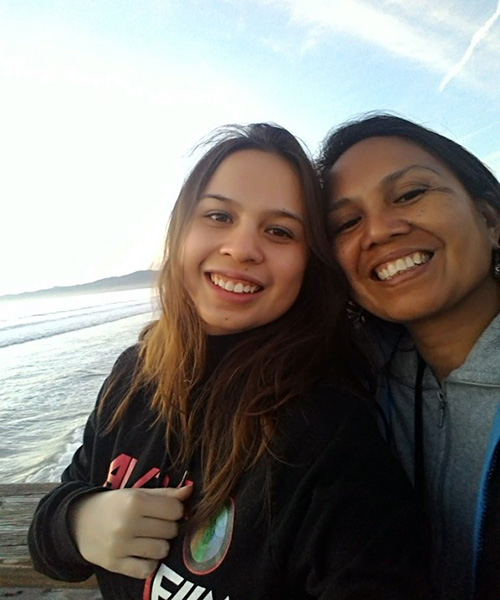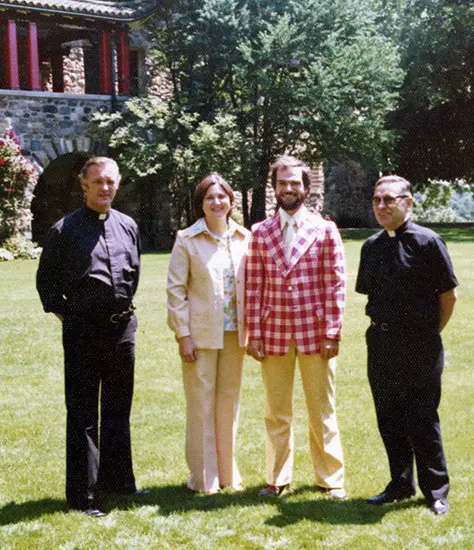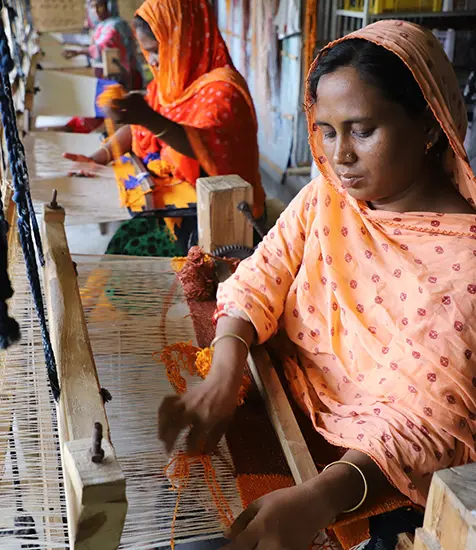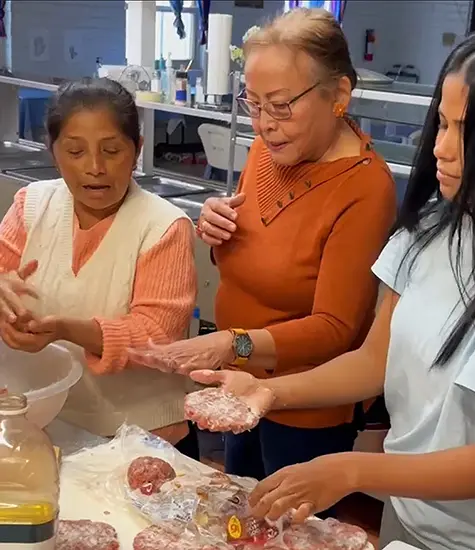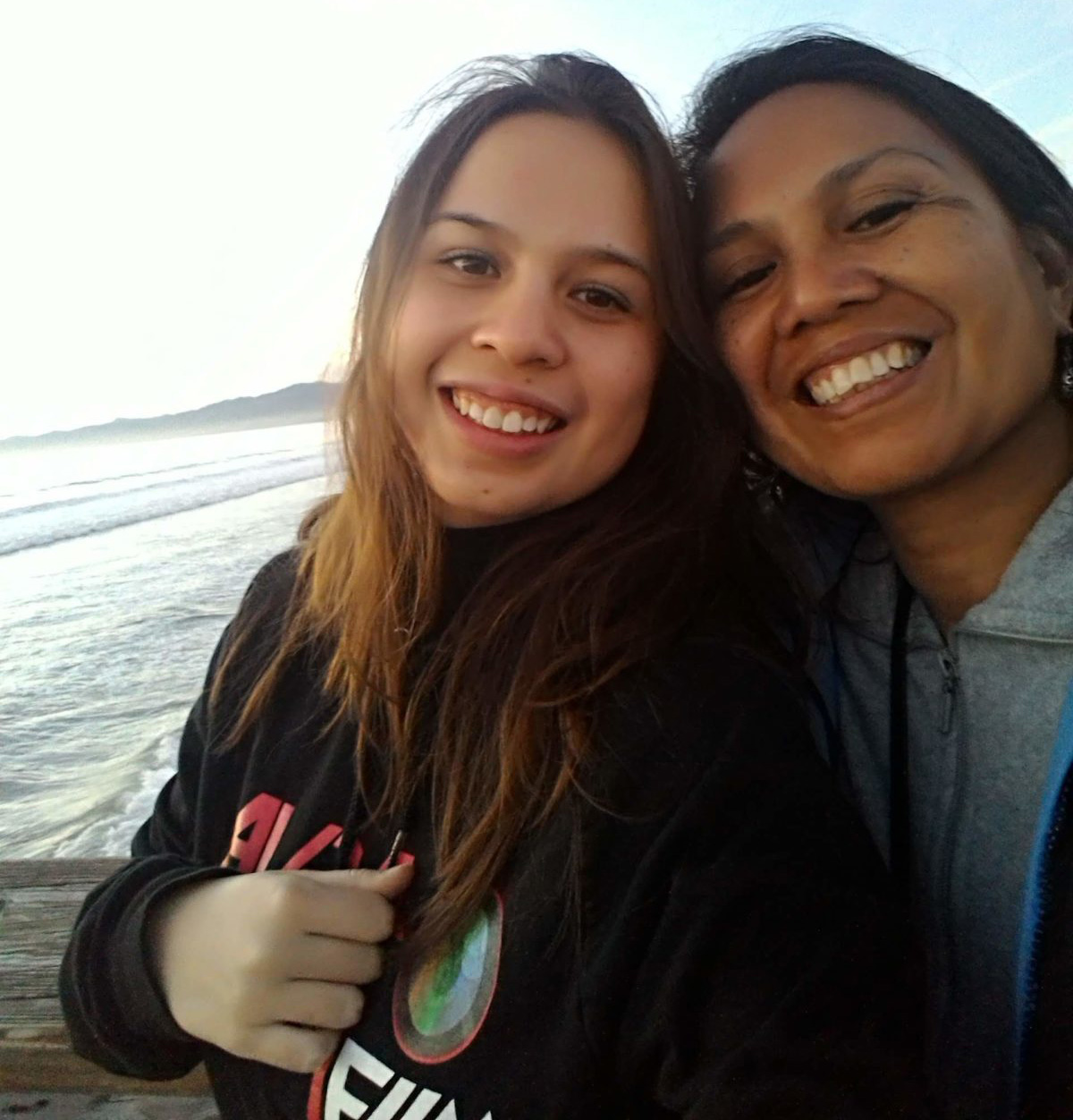
Angel Mortel with her daughter, Cecilia.
In 2015 our family left Brazil after 16 years of living and working in São Paulo. When we arrived in the U.S., the culture shock wasn’t as bad as we thought it would be for two reasons. One, we settled in Los Angeles, a city that isn’t as big, chaotic or diverse as São Paulo, but is definitely close. We felt very much at home here, even though the pace of life was much faster and the dominant language wasn’t Portuguese, but Spanish. Second, we moved into work that carried much of the same spirit as the work we did in Brazil.
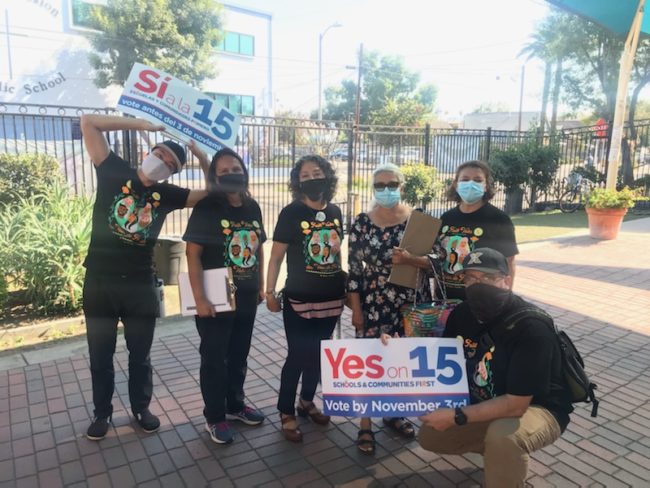
Angel (second from left) with leaders at Dolores Mission Church in LA, preparing to talk to voters about Proposition 15.
Since coming to LA, I’ve been involved in social justice advocacy and organizing. In the last two years, I’ve worked as a faith-based organizer with LA Voice (which is part of the PICO Network), a multi-racial, multi-faith network of congregations that use our collective power to advocate for change. Our hope and goal is to build an LA County in which all feel they belong and all are included. I recently worked to engage voters around several propositions on the California ballot that would bring resources to schools and communities, especially funding for alternatives to incarceration, rent relief, and youth development. Outside of the election season, LA Voice is mostly involved in advocacy around immigration, affordable housing and criminal justice reform.
The part of my current work that has been most influenced by my time in mission is what I would consider the core of organizing: building inclusive community founded on authentic and deep relationship. It’s in that web of relationships where our power to change unjust systems is rooted.
In mission, I worked with a ministry of the Brazilian Catholic Church called Pastoral da Criança (Children’s Pastoral). This involved organizing women in low income neighborhoods to advocate for improved child and maternal health. I coordinated a group of 20 community leaders, offering support and training to equip them to visit families with children at risk of malnutrition. In their visits, they not only assessed the health needs of the children, but also explored with the families concrete solutions to community problems. We reached over 300 families in 3 different favelas. Over the years, we developed deep and trusting relationships with many families.
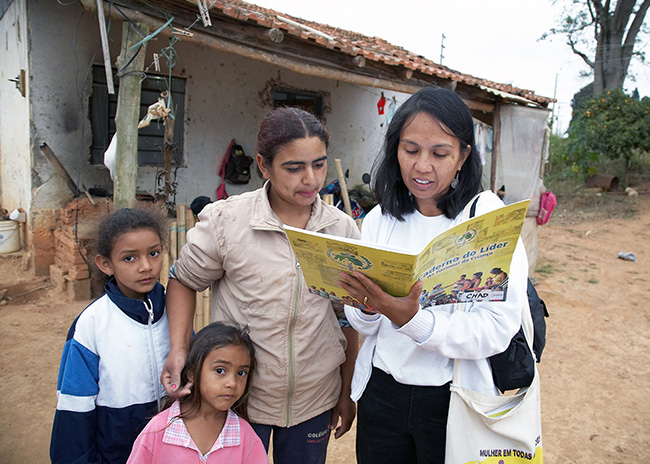
In 2008, Angel visits the home of a sharecropper family near Ibiuna in São Paulo State, through Pastoral da Criança (Children’s Pastoral). Photo by Sean Sprague.
And it was these kinds of relationships that helped us to improve the community in small ways. One of our many victories included securing representation for mothers and female leaders on the advisory board at the local public health clinic. Previously no community members were a part of the board. It had been totally made up of doctors, nurses and medical personnel. The Pastoral da Criança leaders proposed changing the structure of the board so that it would always have at least two to three people from the community who used the services of the clinic. It was a direct way that the community could have a voice in the decisions of the health clinic.
In my ministry and in this example, I saw the power of an organized group to change a structure and gain a voice in decisions. And it was the depth and breadth of the relationships in that group that gave the group such power. This is the kind of work I’m doing now with LA Voice, except within and between congregations. We build collective power by bridging people and communities in transformative relationships. I’m grateful that my time in mission taught me this lesson.
Brazilians have a saying that goes “Filho de peixe, peixinho é.” It literally means. “The child of a fish is a little fish.” The equivalent in English would be “like mother, like daughter.” My oldest daughter, Cecilia, has also been involved in social justice advocacy since we arrived in LA. In her senior year, she organized a walkout at her high school against gun violence. And currently as a college student she is actively involved with CLUE (Clergy and Laity United for Economic Justice). She uses her media and film experience to bring awareness to economic injustice in LA and California more broadly. She has been gathering stories from hotel workers who have had their rights denied around health care and sick leave. CLUE will use these stories to strengthen their campaign to organize these workers to demand justice.
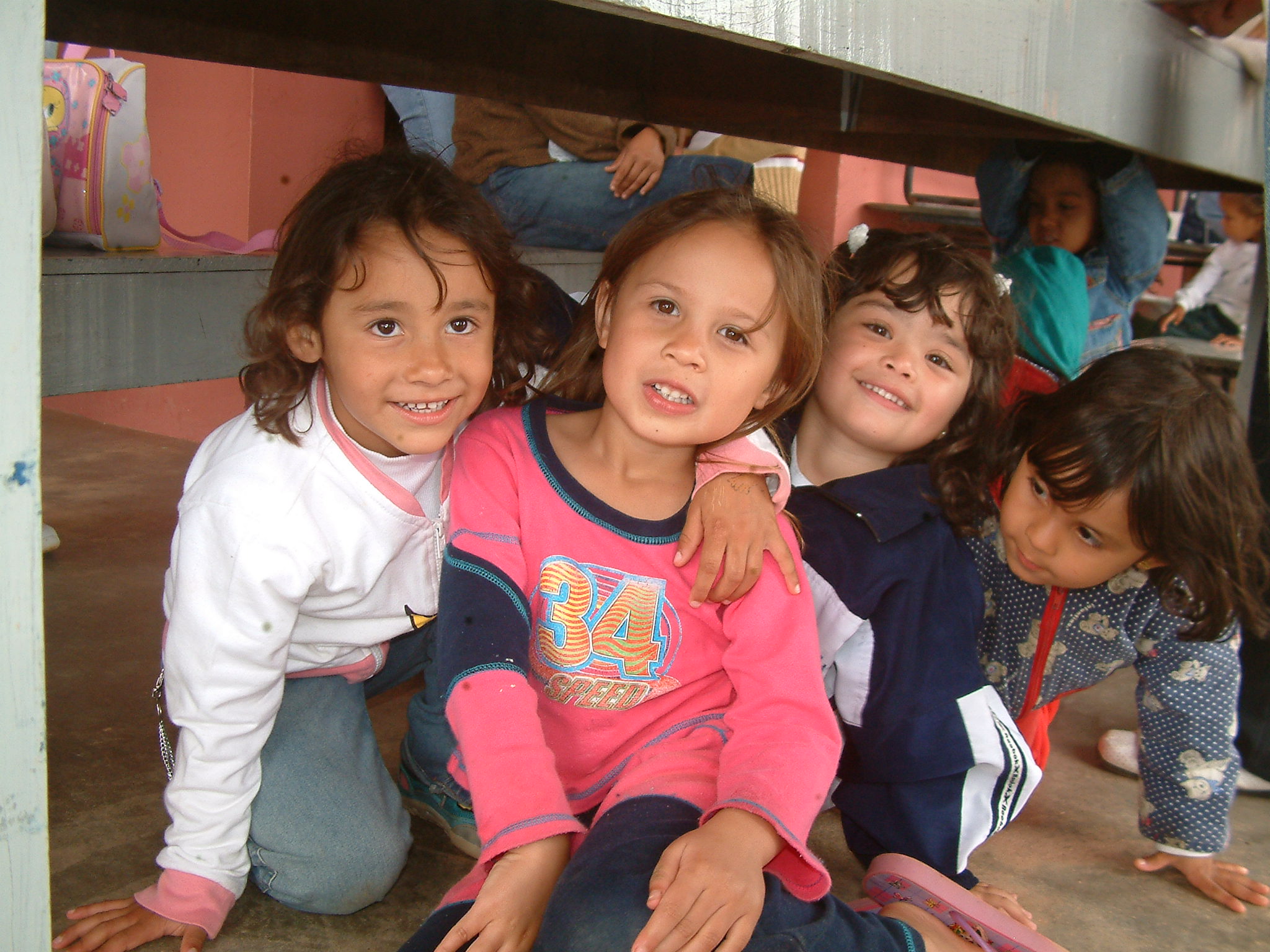
Cecilia at a Pastoral da Criança gathering
Cecilia has said that growing up in mission influenced how she sees the world and how she has chosen to dedicate her life. As a little girl, she often accompanied me when I visited families in the Pastoral da Criança. She saw how much people struggled in their daily lives to survive because they had no job, no food, no safe housing. She saw that many people in this world are fighting for a life with dignity. The injustice and struggle to survive that she saw in the kids and their families, she sees reflected in the stories of the hotel workers fighting for their rights. And she has made a commitment to walk with people in their fight.
Having grown up among some amazing Maryknoll missioners in the Brazil Mission Community, Cecilia was never lacking in role models of people committed to social justice. Their spirit definitely rubbed off on her and shaped her understanding of the Catholic faith. She grew up believing that social justice is an integral part of our call as Christians and as Catholics. She saw in Maryknoll missioners people who took seriously that call by living out their faith in action.
I’m grateful for the years we spent with Maryknoll in Brazil. It changed my life, but also had an impact on my children. The injustice we saw up close in Brazil strengthened my own resolve to commit my life to changing unjust structures. The added bonus is that the experience formed my daughter, the next generation, a future leader, our hope to take up this commitment.

